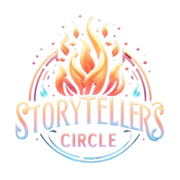I hate to advertise, but I admire the character creation guide offered by Dungeons and Dragons 5th Edition, in its Player's Handbook. It focuses on key elements like a background, a flaw, and a belief/virtue. It's broken down like this:
The Background is a separate element from the character class and such. In tabletop I often see people who say, "I'm an assassin so I get paid to kill people" and that's it. How bland, how drab! Where did you come from, who influenced you? A background is more tied towards a profession and a heritage. Whenever I make a character or encourage others to make a character, I ask them these questions. Not all Orc Barbarians come from the badlands, and not all Dwarves come from the deepest mines. When I ask for a background, I usually also ask for a defining event that set the character on adventuring anyways - but not too heroic. For example, defying a king's decree and smuggling your family out of a war-torn city is less heroic (and more realistic) than a starting character who defeated a lich lord (or something else overblown and unreal)
The flaw is different than a quirk. This is what defines the difference between a multi-faceted character and a Mary Sue. A flaw is deeply rooted and tied to your character's vision on life. For example, a young boy who saw his village slaughtered may grow to become a monk and a pacifist. Pacifism is not inherently a flaw, but in a campaign orchestrated with combat and magic, a pacifist could be squeezed into tight situations that will pressure the character. If a player is having trouble with finding a flaw, the seven deadly sins (Lust, Gluttony, Sloth, Envy, Greed, Wrath, and Pride) can be a touchstone to figure out where a character's flaw should be centered. I do not condone racism, but often a racist character can cause much trouble for himself and others - but still stay true to themselves, based on their character's backstory
The virtue is the hinge pin of the character. I agree; never lose sight of your character's motivation while roleplaying. The best way to do this is to write a small motto or phrase your character follows, such as "Nobody gets left behind" (Lilo & Stitch Reference) or "The only person who matters is #1". These mottos create the lens from which your character will view the world and interact with it. Now, the best characters change over time, but this is not erratically changing every session. A character's virtue defines them in their first walk through that glorious world, and when that virtue is put to the test and pressured by a good GM, it can create what we desire most from a main character; internal conflict and emotionally hooked story sequences
